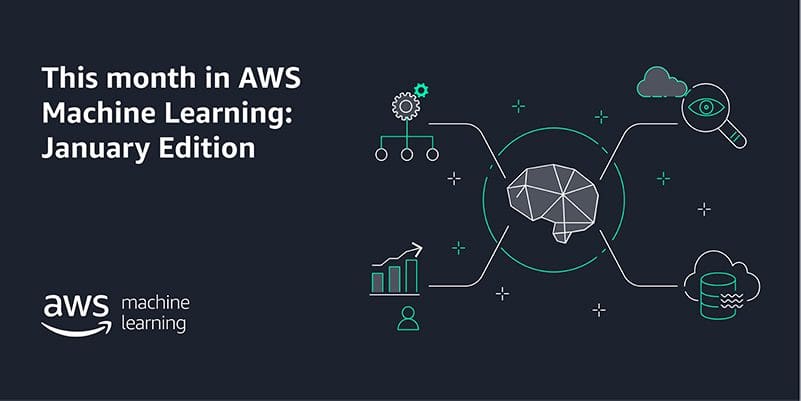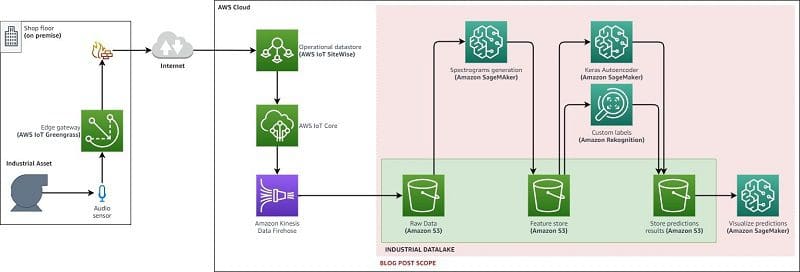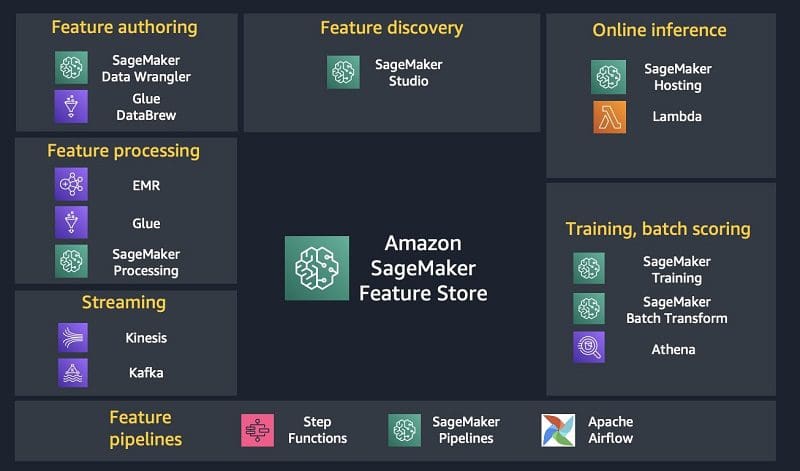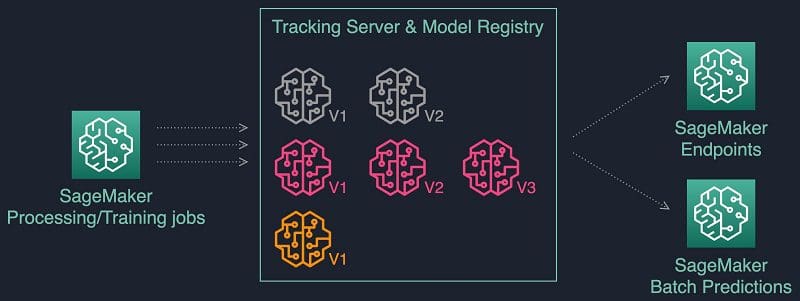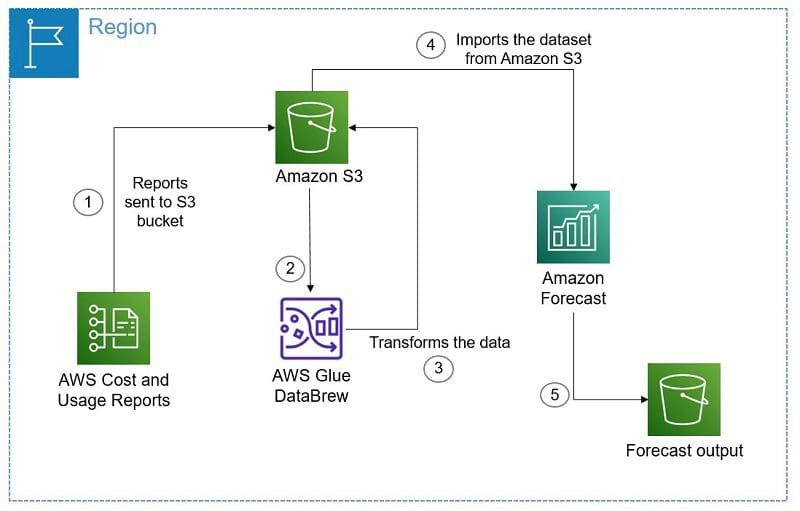Favorite Amazon SageMaker Debugger can monitor ML model parameters, metrics, and computation resources as the model optimization is in progress. You can use it to identify issues during training, gain insights, and take actions like stopping the training or sending notifications through built-in or custom actions. Debugger is particularly useful
Read More
 Shared by AWS Machine Learning February 2, 2021
Shared by AWS Machine Learning February 2, 2021
Favorite AWS DeepRacer allows you to get hands on with machine learning (ML) through a fully autonomous 1/18th scale race car driven by reinforcement learning, a 3D racing simulator on the AWS DeepRacer console, a global racing league, and hundreds of customer-initiated community races. Pre-season qualifying underway We’re excited to
Read More
 Shared by AWS Machine Learning February 1, 2021
Shared by AWS Machine Learning February 1, 2021
Favorite Hello and welcome to our first “This month in AWS Machine Learning” of 2021! Every day there is something new going on in the world of AWS Machine Learning—from launches to new to use cases to interactive trainings. We’re packaging some of the not-to-miss information from the ML Blog
Read More
 Shared by AWS Machine Learning February 1, 2021
Shared by AWS Machine Learning February 1, 2021
Favorite Industrial companies have been collecting a massive amount of time-series data about operating processes, manufacturing production lines, and industrial equipment. You might store years of data in historian systems or in your factory information system at large. Whether you’re looking to prevent equipment breakdown that would stop a production
Read More
 Shared by AWS Machine Learning January 29, 2021
Shared by AWS Machine Learning January 29, 2021
Favorite Here are 4 reasons why stories can be a very powerful way to share knowledge. I often use the US Wildland fire lessons center as a great example of knowledge sharing. Their portal contains lessons, advice, a blog, summaries of incidents, and links to videos hosted on their youtube
Read More
 Shared by Nick Milton January 29, 2021
Shared by Nick Milton January 29, 2021
Favorite CLIPr aspires to help save 1 billion hours of people’s time. We organize video into a first-class, searchable data source that unlocks the content most relevant to your interests using AWS machine learning (ML) services. CLIPr simplifies the extraction of information in videos, saving you hours by eliminating the
Read More
 Shared by AWS Machine Learning January 28, 2021
Shared by AWS Machine Learning January 28, 2021
Favorite One of the challenging parts of machine learning (ML) is feature engineering, the process of transforming data to create features for ML. Features are processed data signals used for training ML models and for deployed models to make accurate predictions. Data scientists and ML engineers can spend up to
Read More
 Shared by AWS Machine Learning January 28, 2021
Shared by AWS Machine Learning January 28, 2021
Favorite With the rapid adoption of machine learning (ML) and MLOps, enterprises want to increase the velocity of ML projects from experimentation to production. During the initial phase of an ML project, data scientists collaborate and share experiment results in order to find a solution to a business need. During
Read More
 Shared by AWS Machine Learning January 28, 2021
Shared by AWS Machine Learning January 28, 2021
Favorite AWS Cost Explorer enables you to view and analyze your AWS Cost and Usage Reports (AWS CUR). You can also predict your overall cost associated with AWS services in the future by creating a forecast of AWS Cost Explorer, but you can’t view historical data beyond 12 months. Moreover,
Read More
 Shared by AWS Machine Learning January 28, 2021
Shared by AWS Machine Learning January 28, 2021
Favorite This is a guest post from deepset (creators of the open source frameworks FARM and Haystack), and was contributed to by authors from NVIDIA and AWS. At deepset, we’re building the next-level search engine for business documents. Our core product, Haystack, is an open-source framework that enables developers to
Read More
 Shared by AWS Machine Learning January 27, 2021
Shared by AWS Machine Learning January 27, 2021
![]() Shared by AWS Machine Learning February 2, 2021
Shared by AWS Machine Learning February 2, 2021

